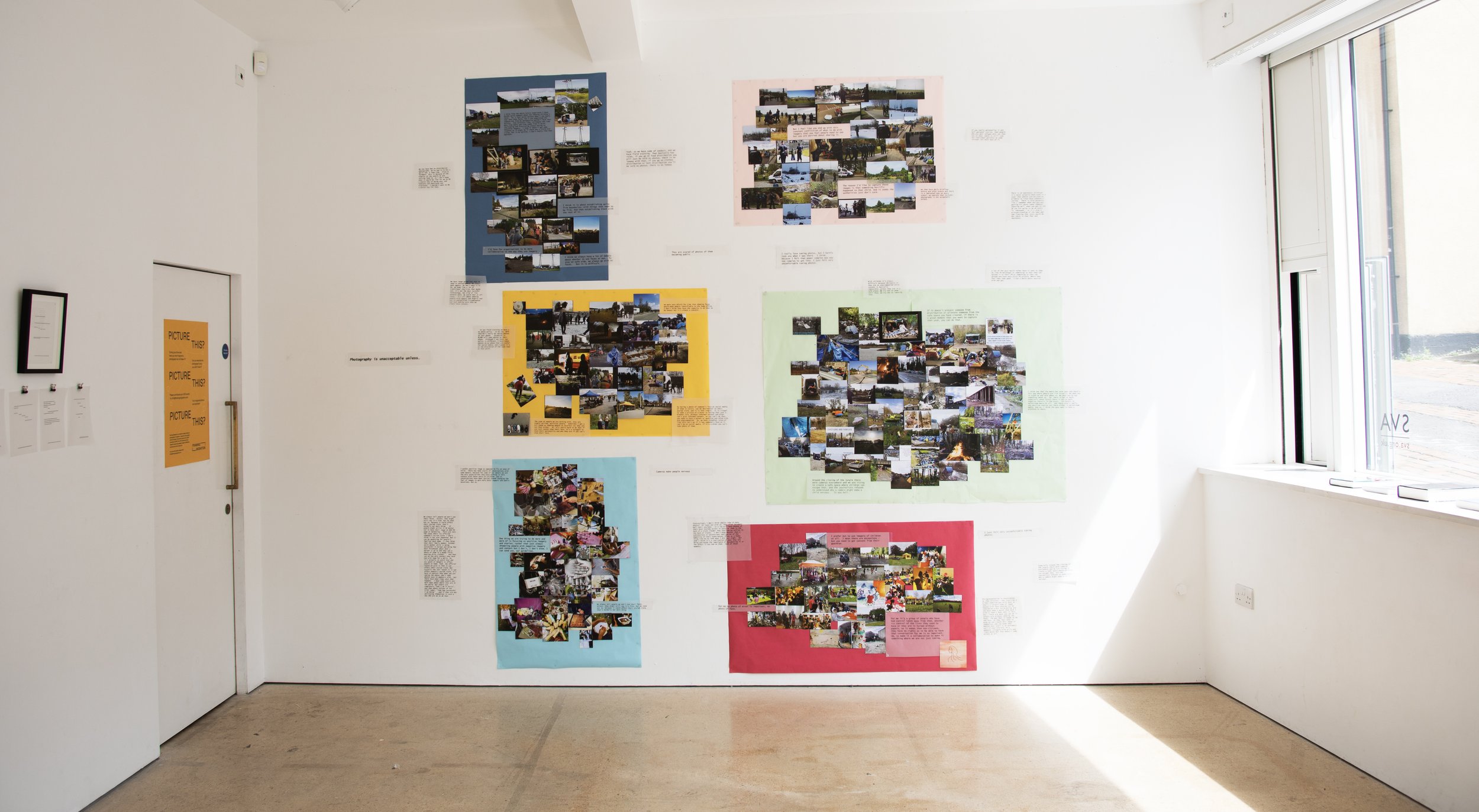Framing Migration
A three part visual research project exploring the creation and dissemination of imagery by NGOs working in Calais and Dunkirk, Northern France. 2019 - 2022.
In 2017, the demolition of the Calais Jungle was complete and with it, the media coverage. Although refugees remained in Calais and border crossing attempts continued, the destruction of the Jungle forced refugees to the edges of the Calais and Dunkirque and media coverage had seemingly moved on. I was aware of the significiant numbers still on the border and the role that NGOs on the ground were still playing to support them and deliver aid yet there was a distinct lack of awareness of the situation in the UK public. Very few images were being shared.
This project sought to explore how NGOs approach representing those they seek to support. Through field work at the border which consisted of interviews with NGO workers & workshops with refugees living in the area I sought to gather personal testimonies on approaches to gathering and sharing photographs about the situation. This field work is now informing a written thesis and series of visual installations on the topic.
In progress:
Chapter 1 - In/visibility
This chapter explores the seemingly contradictory relationship NGOs in the area hold with photography and how this can lead to them inadvertently reaffirming dominant narratives in the depiction of refugees and asylum seekers in Calais. Photography is both relied upon and resisted by NGOs working in the area contributing to the lack of visibility of their presence & the work they do there. What images are made (& shared) tend to be poorly composed and lacking in visual complexity – singular images showing the back of a head, hands, landscape images devoid of people altogether. The first chapter of this visual research projects explores this In/Visibility.
The end result is not a statement but a question; a question of what is and what isn’t allowed to be seen of refugees at the border.
Picture this?
Posters were shared with NGO workers in Calais and Dunkirque as part of the exploration of images not taken contributing to the in/visibility of refugee and asylum seekers living on the English French border. A collection of responses to the question are being collated.
Workshops:
Cameras seemingly have a contentious history in Calais and Dunkirque but other creative and analogue approaches to photography have been more commonly embraced by the displaced communities living in an area. A series of cyanotype workshops held with families living in the woods outside Grande Synthe generated an archive of images which marked presence and existence in a place where this is otherwise denied and avoided. Creating an opportunity to ascert identity withouth jepeodising the journey.





Re-imagining Human Rights Photography: Ariella Azoulay’s Intervention, Gormley A & Allan, S. 2019
Gormley and Allan focus on several pertinent theoretical contributions made by Ariella Azoulay that invite a radical rethinking of familiar assumptions regarding human rights photography. Having established a conceptual basis, they proceed to analyse several examples of photojournalists attempting to ‘activate’ viewers by inviting them to co-create photographic narratives via methods of hypertext and online archival interaction, and of International Non Governmental Organisations (INGOs) working to create projects which ‘speak’ to viewers by involving the children they seek to represent in the production of photography. It is argued that in taking up Azoulay’s call to rethink public relationships to human rights imagery, these projects represent progressive steps towards addressing the multifarious inequalities at stake. At the same time, however, realising this potential depends on making good the promise of rendering visible the normative ideals of human rights.
Writing:
This chapter sits under the same umbrella as Framing Migration as it explores NGO approaches to collaborative image making with refugee and asylum seekers.
Images © Anna Gormley 2022.
Framing Migration Workshop
This workshop was held on 4th August 2019. It was the first of what we hope will become a biannual event.
I set up the Framing Migratio worksho in 2019. It ws a new workshop format which offered a unique opportunity for early career researchers, thinkers, photographers & image-makers to come together with the support of industry professionals to share, debate and develop both their own personal projects and critical thinking around the theme, ‘Framing Migration’.
The workshop theme was intentionally broad in the hope that we could together a diverse range of people working within this complex and diverse topic. A wide range of projects were submitted and applicants were encouraged to approach the theme in new and innovative ways. There was a particular focus on the following themes:
1. Activating archives
2. Collaboration & Co-production
3. Ethics and the aestheticisation of suffering
4. Issues of voice and face in representation
